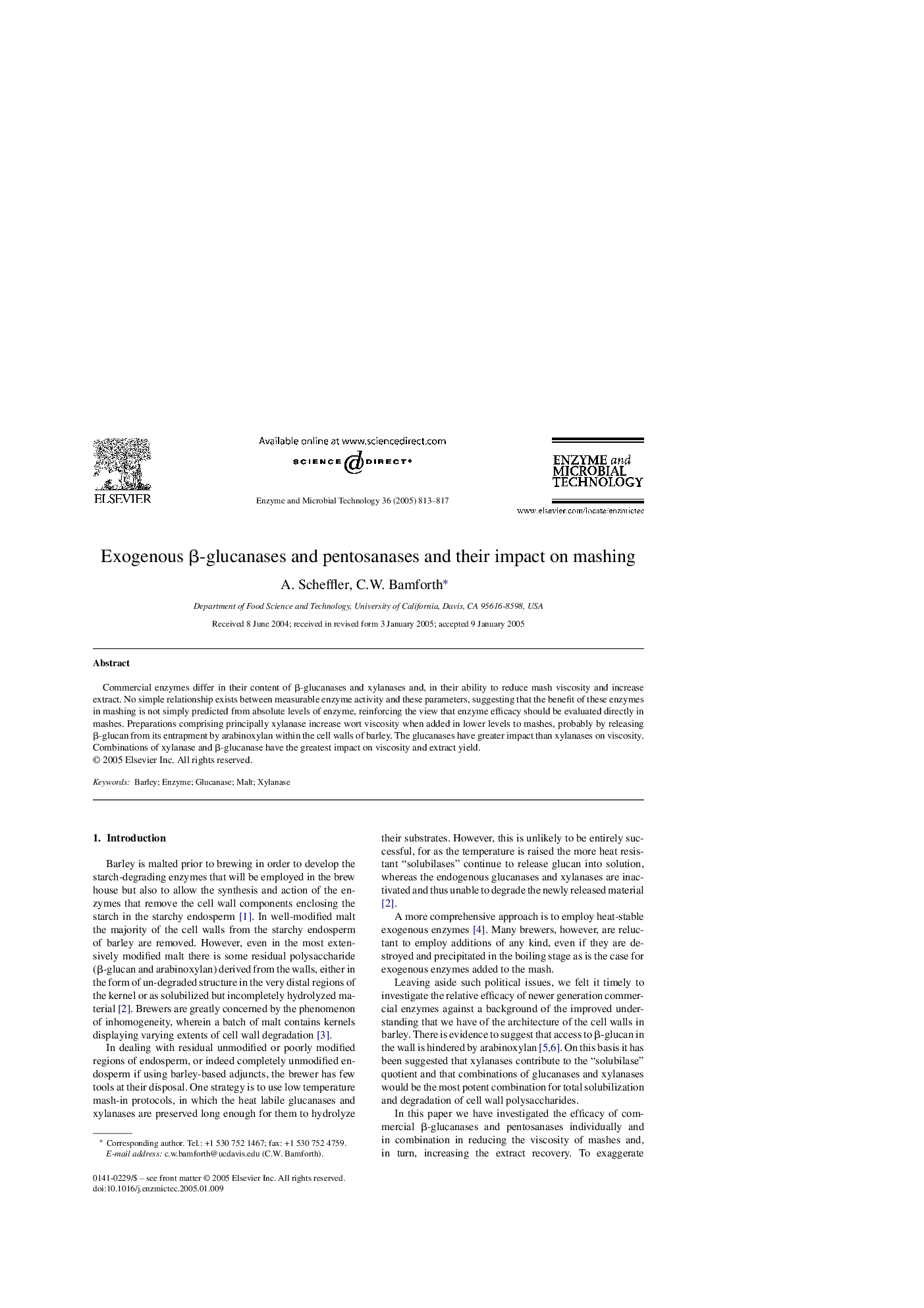| Article ID | Journal | Published Year | Pages | File Type |
|---|---|---|---|---|
| 9602660 | Enzyme and Microbial Technology | 2005 | 5 Pages |
Abstract
Commercial enzymes differ in their content of β-glucanases and xylanases and, in their ability to reduce mash viscosity and increase extract. No simple relationship exists between measurable enzyme activity and these parameters, suggesting that the benefit of these enzymes in mashing is not simply predicted from absolute levels of enzyme, reinforcing the view that enzyme efficacy should be evaluated directly in mashes. Preparations comprising principally xylanase increase wort viscosity when added in lower levels to mashes, probably by releasing β-glucan from its entrapment by arabinoxylan within the cell walls of barley. The glucanases have greater impact than xylanases on viscosity. Combinations of xylanase and β-glucanase have the greatest impact on viscosity and extract yield.
Related Topics
Physical Sciences and Engineering
Chemical Engineering
Bioengineering
Authors
A. Scheffler, C.W. Bamforth,
